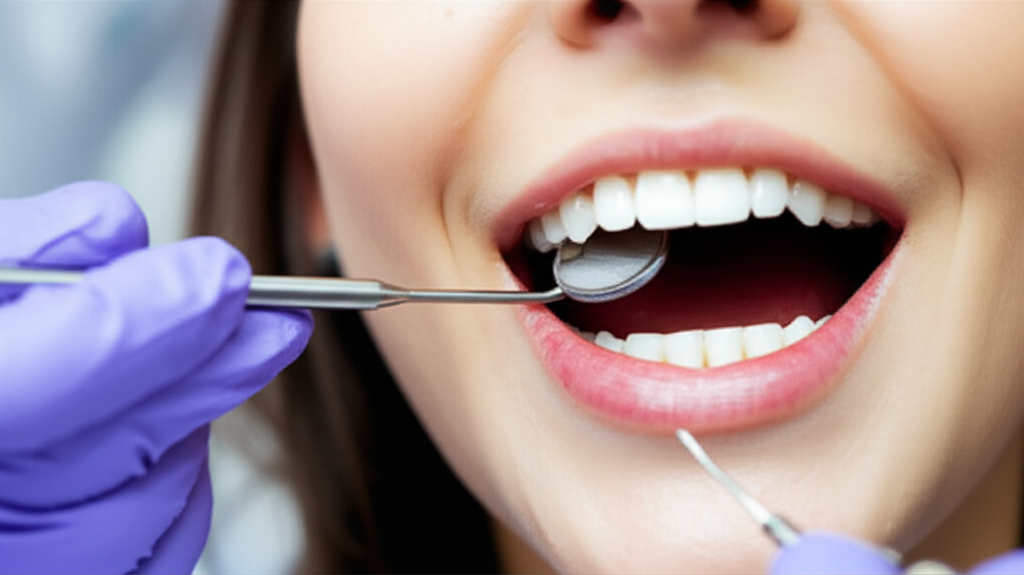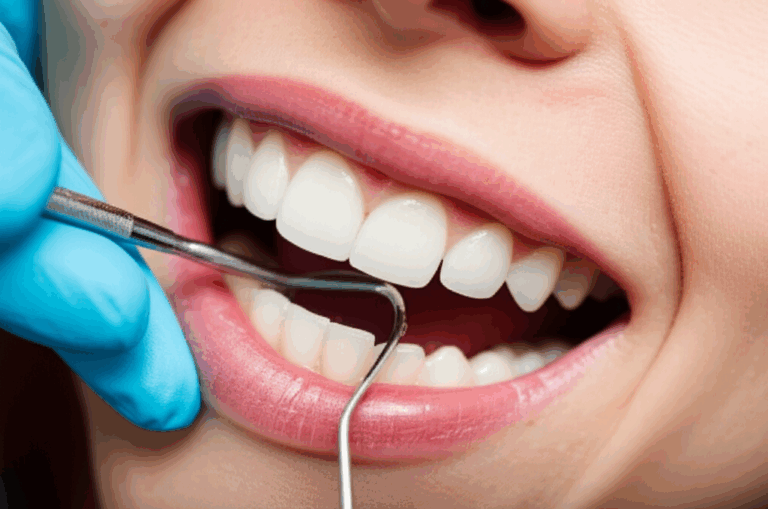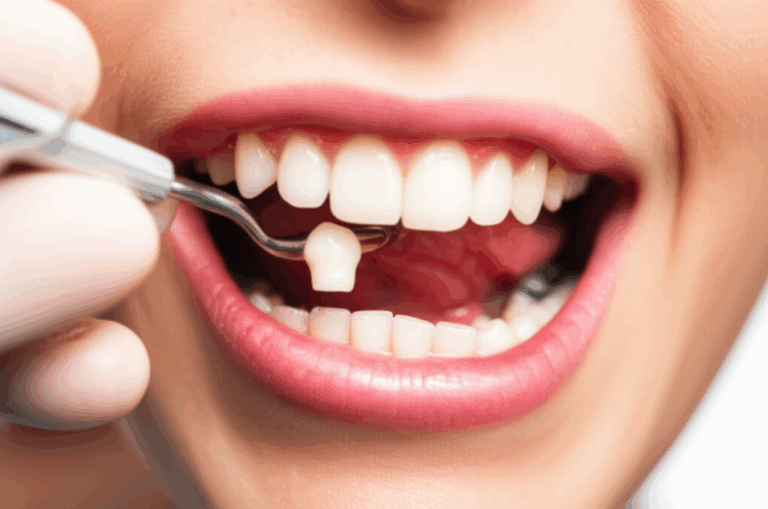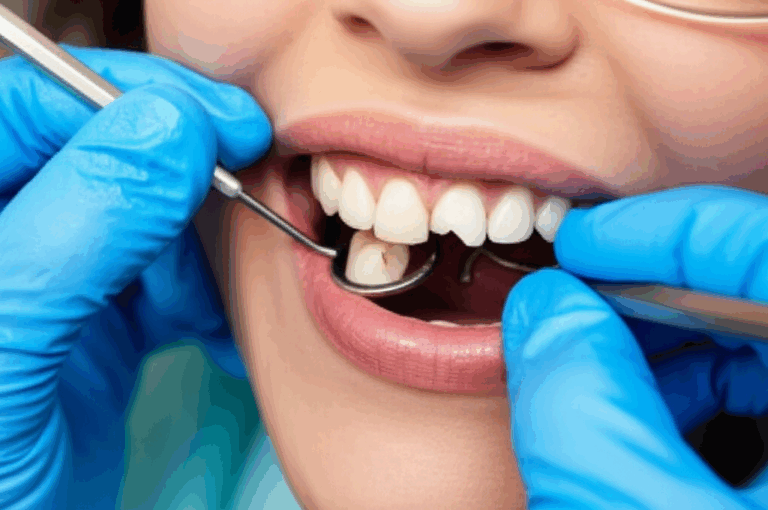
Can a Dentist Help with Dry Mouth? My Personal Guide to Diagnosis and Treatment
Table of Contents
- Comprehensive Oral Exam
- Reviewing Medical History and Medications
- Saliva Flow Rate Test (Sialometry)
- Tackling Underlying Causes
- Stimulating and Replacing Saliva
- Protecting My Teeth and Gums
- Lifestyle and Home Remedies
1. What Is Dry Mouth (Xerostomia) and Why Does It Matter?
To be honest, when I first noticed my mouth always felt dry, even sticky, I didn’t run to my dentist. I just thought maybe I wasn’t drinking enough water, felt stressed out, or maybe had too much coffee. But dry mouth—also called xerostomia—turned out to be way more important than just an annoying feeling for me.
Dry mouth means your body isn’t making enough spit. That might not sound like a big deal, but saliva is super important for keeping your teeth and gums safe. Without enough, food sticks, breath smells bad, and little problems turn into big ones.
Here’s what changed for me:
- I started getting more cavities, even though I brushed and flossed all the time.
- Eating toast or dry crackers actually hurt my mouth.
- My lips started cracking and peeling much more.
- Speaking for a long time—like at work—became tough.
If you’ve ever gone through this, you know dry mouth can make you feel less sure of yourself and just uncomfortable. It can really hurt your teeth, and even make simple things like eating and talking harder. I found this out the hard way.
Why Is Dry Mouth Bad?
Dentists like Dr. Joe Dental say saliva doesn’t just keep your mouth wet. It washes away leftover food, kills harmful acids, and even has stuff that helps fix your tooth enamel. Lose this natural protection, and suddenly you can get:
- Lots of cavities, usually near your gums
- Sore or bleeding gums
- Fungal infections, like oral thrush
- Bad breath that doesn’t go away
The longer you ignore dry mouth, the worse it gets for your teeth and gums—especially if you’re older or use some kinds of medicine. That’s why I say: Don’t just ignore dryness and think it’s nothing.
2. How My Dentist Diagnosed My Dry Mouth
After months of dealing with it, I finally made a dentist appointment. I’m so glad I did. Dentists see dry mouth all the time—they know how to spot it and how bad it can be.
Let me show you what really happens at the dentist when you tell them your mouth is dry.
Comprehensive Oral Exam
My dentist started by asking how long I felt this way. She looked all over my mouth: my tongue, cheeks, gums, and the inside of my lips. She checked for things like:
- A red, cracked tongue
- Not enough spit shining in my mouth
- Saliva that looked thick or stringy
- No saliva pooling under my tongue
She also gently pushed on the main spit glands under my jaw and in front of my ears. Sometimes, dentists tap inside your cheek or ask you to swallow to see if your mouth stays dry.
If you’ve never had a dentist take this much time to look, it can surprise you. Mine quickly noticed the signs of dry mouth.
Checking My Medical History and Medications
Next, my dentist asked about my health. She wanted to know about:
- Ongoing issues like diabetes or Sjögren’s Syndrome (which dry out your mouth)
- My sleep habits (like if I snored or breathed through my mouth at night)
- Every medicine I took—even simple allergy pills or antidepressants
I learned that over 500 common medicines can make spit dry up! Allergy meds, antidepressants, and water pills made my dentist think my prescription might be part of the problem. She also asked about what I eat, how much water I drink, and how much coffee and alcohol I have. Turns out, all the coffee didn’t help.
This step matters a lot. Many people skip over “small” pills or habits, but those might be the main reason for dry mouth.
Saliva Flow Rate Test (Sialometry)
To really find out, my dentist did a simple spit flow test called sialometry. It sounds fancy, but it’s easy: I sat quietly and spat into a cup for about five minutes. Then, she measured it. (It’s not as weird as it sounds!)
A “normal” spit flow is about 0.3–0.4 mL per minute. I was way under that. If your spit amount is low, it’s a good sign you have real dry mouth—meaning water alone won’t fix it.
3. What Treatments Did My Dentist Recommend?
Once I knew what caused my dry mouth, my main question was, “What now?” I worried, would I always have sore gums, bad breath, and get lots of cavities? The answer surprised me—a dentist can help a lot. Here’s what my dentist suggested, which might help you too.
Tackling Underlying Causes
First, my dentist reviewed the meds I was taking. Sometimes, changing the medicine (with my doctor’s say-so) could fix things right away. She wrote my doctor a note, asking if a swap could help without as many dry mouth side effects. Sometimes it’s just that easy.
Other times, like if you have diabetes or Sjögren’s Syndrome, you have to work on the main problem. For these, dentists and doctors will work together to treat you.
Stimulating and Replacing Saliva
My dentist told me spit can be replaced or helped along, at least a bit. Here’s what she suggested:
- Prescription Medications: For some people, drugs like pilocarpine (Salagen) or cevimeline (Evoxac) can help the glands make more spit if they can still work a little. Not everyone can use them, but it’s worth asking.
- Over-the-Counter Products: She told me about fake spit sprays and gels (like Biotene or XyliMelts) that keep your mouth slick and comfortable. These don’t cure dry mouth, but using them before meals and bed made me feel a lot better.
- Xylitol Gum and Candy: Chewing gum with xylitol made me make more spit, and it didn’t cause cavities like regular gum or candy.
I had to try a few options before I found what worked for me. My dentist gave me some samples to help pick.
Protecting My Teeth and Gums
Here’s something I didn’t know: Dry mouth makes your teeth a lot more likely to get cavities, especially near the gums. So, my dentist told me to use:
- High-fluoride Toothpaste and Varnish: Extra fluoride made my teeth harder so cavities didn’t form as fast.
- Germ-killing Mouth Rinse: Because you’re more likely to get infections like thrush with less spit, sometimes dentists give you a rinse to keep germs away.
- More Dentist Visits: I started going every three months, instead of twice a year. These visits caught small problems before they became big ones.
- Custom Night Guards or Dentures: If needed, a removable denture lab or night guard dental lab can make custom protectors for your teeth. Luckily, I didn’t need these, but lots of people do.
Lifestyle and Home Remedies
My dentist also told me to try a few simple things at home:
- Sip Water All Day: Not just during meals! I kept a water bottle nearby and drank often.
- Cut Down on Caffeine, Alcohol, and Tobacco: These dry out your mouth even more. I cut back, especially on coffee, and felt much better.
- Breathe Through Your Nose: At night, I tried to breathe through my nose, not my mouth. This helped a lot. For some, using a humidifier at night helps too.
- Change Your Diet: Dry, sticky, or sweet foods got swapped for softer, wetter things that went down easier and didn’t stick in my mouth.
Some of these changes felt hard at first, but they got easier with time, and my mouth felt better pretty quickly.
4. When Should You See Your Dentist for Dry Mouth?
Maybe you’re thinking, “How do I know when to go to the dentist?” From what I learned, don’t wait until it gets really bad. Go if:
- Dry mouth lasts more than a few days or comes back every night
- Eating, talking, or swallowing starts to feel weird or painful
- Bad breath, sore gums, or mouth sores pop up for no reason
- You get new cavities, even though you brush and floss normally
Don’t tough it out. Dentists know how to spot the problem and help you—not just cover up the symptoms.
5. Why Proactive Dry Mouth Care Changed My Life
Getting help for dry mouth made such a big difference in how I felt and looked after my teeth. I had no idea how much better it could get before my dentist stepped in. For me, the big changes were:
- Sleeping better at night without a dry mouth waking me up
- Fewer cavities and less sore gums at every dentist visit
- Not stressing about work calls or parties where I had to talk a lot
- Eating and snacking was easy again (goodbye, bread that felt like sandpaper)
- Even my mood and stress improved sometimes
It sounds like a lot, but the facts back it up. Dry mouth affects more than just being comfortable; it changes your daily life. According to the American Dental Association and NIH:
- 10–30% of adults have long-term dry mouth, and for older folks, up to 60–70%
- Over 500 medicines list dry mouth as a side effect
- People with dry mouth get more cavities, and sometimes they show up quickly
- Relief is possible: 60–80% of people feel a lot better with the right plan (like saliva sprays, medicine, and daily care)
A dentist can also help you check out advanced fixes—things like crown and bridge lab work if you have teeth badly damaged by cavities, or even digital dental lab options if you need new teeth made.
What mattered most for me was my dentist explained everything in simple words and gave me a plan that made sense. Now I realize just how helpful good dental advice is.
6. Frequently Asked Questions About Dental Dry Mouth Help
Can a dentist really help if my dry mouth comes from my medicine?
Yes! A dentist can spot which meds are causing trouble and work with your doctor to find a better one if possible. If you can’t change your pills, they’ll still give you things to help protect your teeth.
What if my dry mouth is from another illness?
Dentists can often see early signs of bigger health problems like Sjögren’s Syndrome or diabetes. They can send you to the right doctor, but they’ll also help take care of your mouth.
Are special dental products needed?
Yes—they help a lot. High-fluoride toothpaste, gentle mouthwash, and spit substitutes all have a role. Your dentist might even suggest custom guards or dentures, made by a special arch dental lab or similar.
Does dry mouth always mean a dental problem?
Not always. It can be because of health conditions, medicine, being dehydrated, or lifestyle choices. But since the mouth is usually the first place you notice it, the dentist should still be your first contact.
Is there a cure for dry mouth?
Not always—but most people can control the signs and stop their teeth from getting worse. The key is finding out why it’s happening and sticking with your dentist and doctor’s advice.
7. Final Thoughts
If you’re facing dry mouth, please don’t just put up with it. My experience showed me that a good dentist is your best friend for this problem. You don’t have to keep dealing with discomfort, cracked lips, or growing numbers of cavities.
Speak honestly with your dentist—they’ve seen it all and know what to do. For me, that first dentist visit brought better comfort, easier eating and talking, and real peace of mind. You can get there too. Book your appointment, ask questions, and take charge of your mouth health—your smile will thank you!








